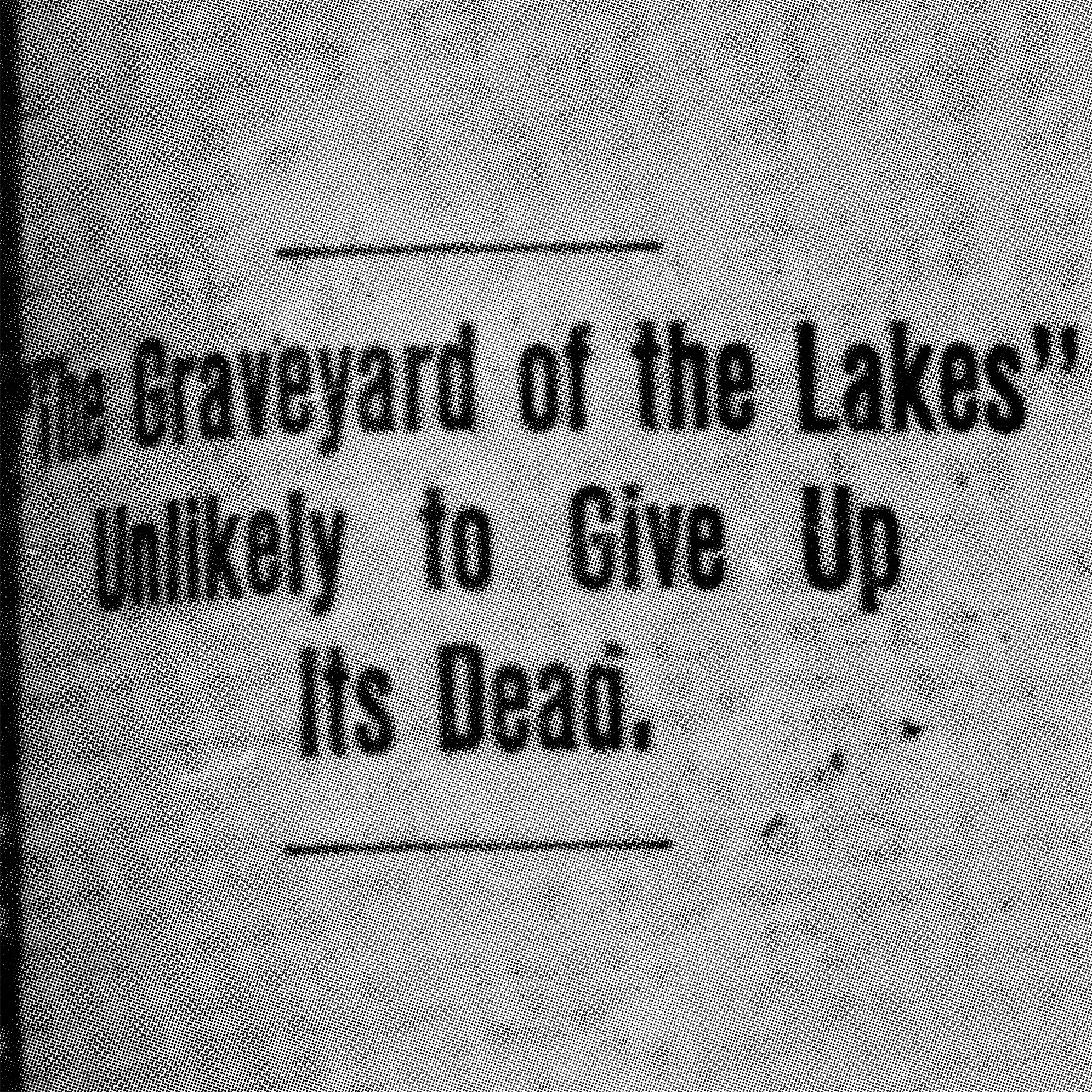Superior, They Said, Never Gives Up Her Dead
Nov 12
Lately, I’ve been thinking about shipwrecks.
‘Tis the season. November 10th marked a full 50 years since the sinking of the Edmund Fitzgerald, which resulted in the deaths of all 29 of her crew. It’s an event that we feel acutely connected to here in the Twin Ports.
All port cities on the Great Lakes have their share of stories of ships that sailed off and were never seen again; Superior and Duluth are no exceptions. Michigan’s Great Lakes Shipwreck Museum estimates that there have been somewhere around 6,000 ships lost in these lakes. Less conservative estimates claim that there have been more than 10,000 vessels wrecked among the 5 Great Lakes. By far the most famous of these wrecks is that of the Edmund Fitzgerald. As a relatively recent maritime disaster, it is within living memory to many folks, but I didn’t learn about the ship sinking from anyone who had lived the experience of hearing about it on the news. The first time I heard the name Edmund Fitzgerland was in the Gordon Lightfoot song.
If you were born after 1970, I imagine you may have learned about it the same way.
It is a beautiful and haunting song that is in full alignment with a long and storied tradition of shipwreck ballads.
Mr. Lightfoot wasn’t the first to sing about lives lost on a sinking ship. He was standing (lightly stepping?) on the shoulders of giants.
People have been singing songs about shipwrecks for as long as we’ve had ships. It’s just one of those wonderfully strange habits that humans have. There is now really just this one shipwreck ballad that lives in our public consciousness, and it’s a banger.
There are too many great lines and lyrics for me to talk about all of my favorites, but there is one bit that is especially powerful to those of us who live near the greatest lake of them all.
“The lake, it is said, never gives up her dead...”
It’s a really great lyric. Very foreboding. But did you know that Gordon wasn’t the first to use that phrase? If you look it up online, all you will find are references to the Lightfoot song, but the phrase has a long tradition of use.
While looking through historic Duluth newspapers I found dozens of variations on “never gives up its dead.” One of the oldest I found is in a Duluth News Tribune article published on June 4th, 1898, about the wreck of a tugboat called the Record.
“…they will never come to the surface, it is said, for it is tradition that Lake Superior never gives up its dead.”
The image used as the header for this blog post comes from another DNT article, but that one was published May 17th, 1921.
Generations of Duluthians have said this very ominous thing about the body of water we live next to, and Gordon Lightfoot just knew that he didn’t need to reinvent the wheel.
Rest assured, I have found no such historical use of the phrase “Superior sings in the rooms of her ice-water mansion.”
